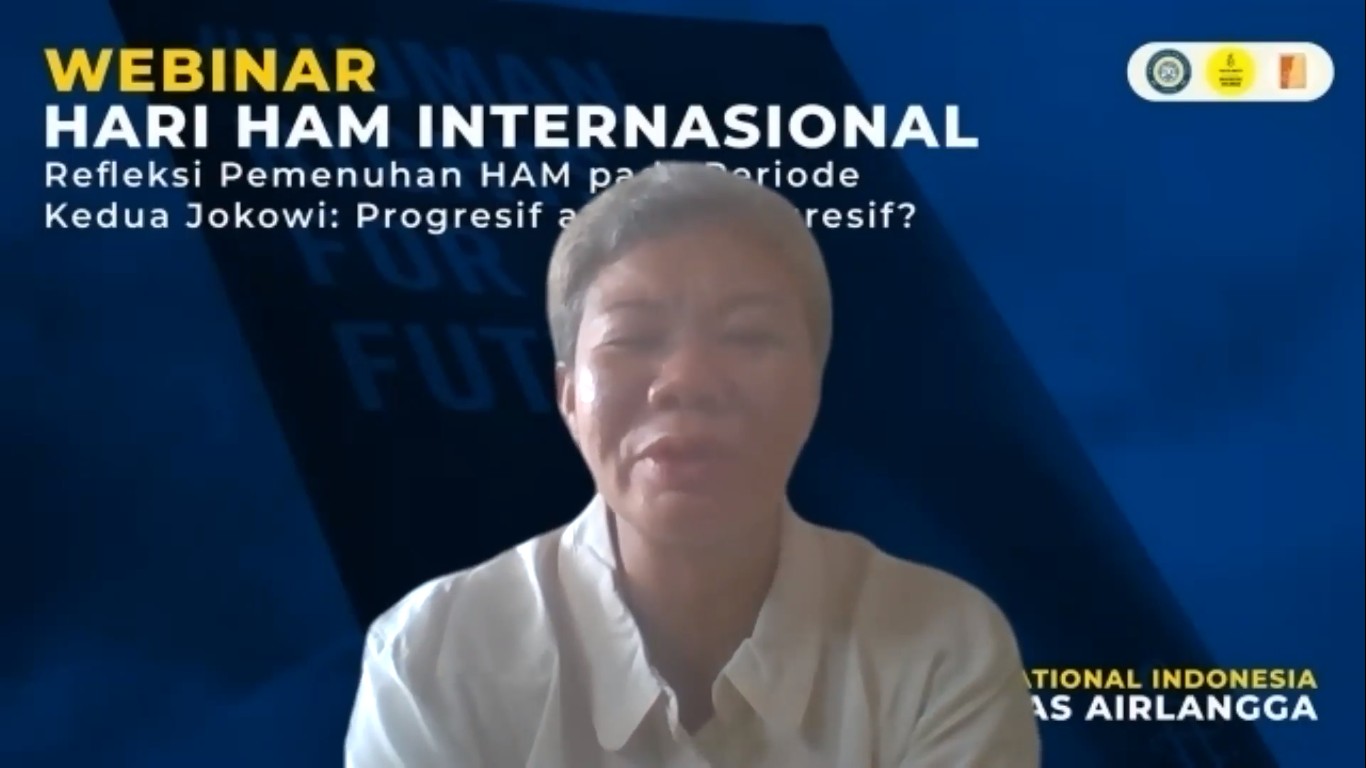UNAIR NEWS – Commissioner of the National Commission on Violence against Women (Komnas Perempuan), Tiasri Wiandani, was invited for the second time by Amnesty International Indonesia Chapter UNAIR. The second round of the International Human Rights Day Webinar series was held on Saturday, December 11, 2021. In the event, she explained about the Sexual Violence Bill (RUU TPKS), a new form of the Sexual Violence Eradication Bill (RUU PKS), which the House of Representatives (DPR) has never ratified.
The exploding number of Violence against Women (KTP) up to 800% in the last 12 years is referred as a big challenge to eradicate KTP, according to Tiasri. The perspective of women’s rights has minimal implications for the performance of state institutions and key community actors. Even though Indonesia has ratified the Convention on the Elimination of All Forms of Discrimination Against Women (CEDAW) since the New Order era, understanding of its principles is still minimal. Tiasri added that the issue is exacerbated by the strengthening of fundamentalism and conservatism.
“The response of the adherents can be seen from their strong rejection of the RUU PKS and the Minister of Education and Culture Regulation (Permendikbud) concerning the Prevention and Handling of Sexual Violence (PPKS) previously. The regulations are considered as a form of free-sex legalization even though it is not in the context. It is impossible for the Minister to make regulations in the spirit of legalizing adultery,” said the labor activist.
Tiasri emphasized that the conditions for handling sexual violence in Indonesia are still hindered by many legal limitations and a culture that rarely takes sides with victims. For instance, victims are blamed by law enforcement officials, and sexual violence is considered a disgrace. These problems are what the RUU TPKS wants to solve.
Some of the progress noted by Tiasri in the RUU TPKS is the existence of special criminal regulations on sexual violence. The victim’s perspective has begun to be realized through the model of evidence and the right to restitution as well as assistance to victims and witnesses. Tiasri also touched on the inclusion of prevention and community participation related to the sexual violence eradication.
“However, this bill also deserves a critical note, considering it is a downsizing product of the RUU PKS. The elements of preventing sexual violence and affirming the protection of victims must be strengthened. The Cyber Gender-Based Violence (KBGS) model must also begin to be formulated because the National Commission of Violence against Women often encounters this type of KTP,” said the commissioner.
The webinar was held to commemorate International Human Rights Day. Several other invited speakers were Sulfikar Amir and representatives from the Indonesian Criminal Justice Reform (ICJR).
Author: Pradnya Wicaksana
Editor: Nuri Hermawan





